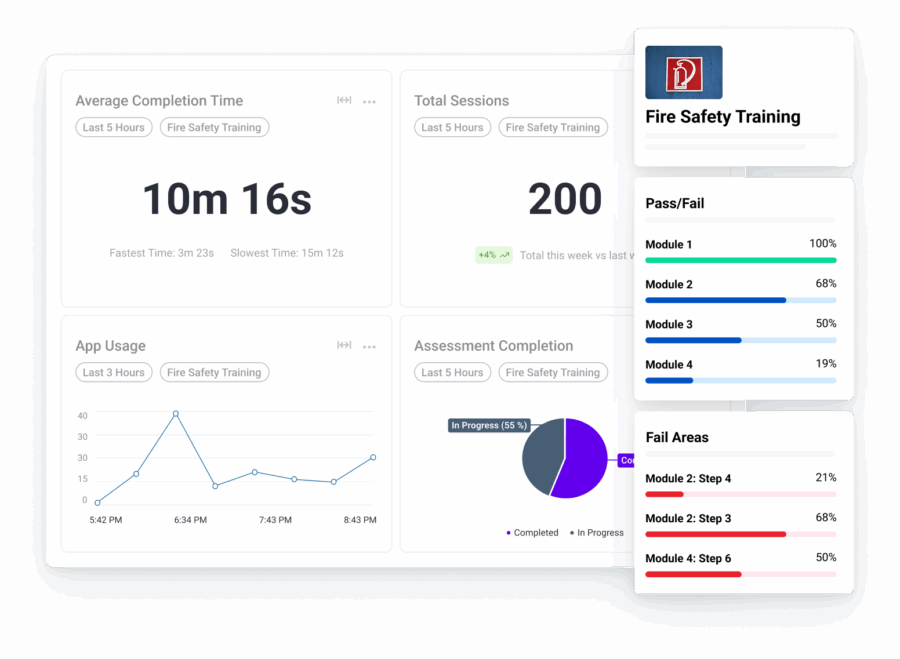ArborXR, a provider of enterprise XR device management solutions, has recently announced its acquisition of InformXR, an XR learning analytics platform. InformXR’s founder, Dan Kuykendall, along with the company’s engineering and data-science teams, will join ArborXR as part of the acquisition.
The acquisition marks ArborXR’s first and introduces ArborXR Insights, a new XR analytics suite. The suite enables users to capture learner performance data, demonstrate ROI, and integrate VR training with existing learning management systems (LMS). ArborXR Insights aims to simplify the integration of unified analytics into ArborXR’s device management offering.
“Despite surging interest in immersive training across industries, XR programs still operate in a data blind spot,” said ArborXR CEO Brad Scoggin. “Without unified analytics, organizations must stitch together manual logs, anecdotal feedback and disconnected platforms to understand learner performance and XR program ROI, leaving executives without the hard evidence needed to fund and scale deployments. ArborXR Insights removes that blocker in minutes, not months—enabling teams to bring XR fully into their learning systems.”
Key features of ArborXR Insights
For Enterprises & Training Teams:
- Real-time tracking of learner performance.
- Shareable dashboards and BI integrations for ROI measurement.
- Integration of VR into over 500 LMS platforms in under ten minutes (according to ArborXR).
- Data security via a SOC 2-certified platform.
- Compatibility with any content provider and internal builds.
- Operation across diverse environments, including offline and secure government settings.
For Content Providers (ISVs):
- Lightweight SDK and secure backend for rapid analytics deployment.
- Embedded dashboards demonstrating training impact.
- Automatic LMS synchronization.
- Enhanced security and privacy to accelerate enterprise deals.

“We built InformXR because we saw how hard it was for developers and enterprises to get the data they need from VR training,” said Dan Kuykendall, Founder and CEO of InformXR. “Integrating directly into ArborXR’s platform was the natural next step—combining powerful insights with best‑in‑class device management.”
The acquisition follows ArborXR’s recent strategic partnership with Meta as one of its officially supported mobile device management (MDM) platforms, as well as the completion of a USD $12 million Series A funding round. ArborXR stated that it currently supports over 3,000 organizations globally, including more than 60 Fortune 500 companies across industries such as manufacturing, aerospace, healthcare, and education.
ArborXR Insights is currently available in a closed beta for 40 customers, with general availability planned for later this summer. For more information in the closed beta, click here.
Quelle:
Foto: ArborXR / InformXR
